First International Economics Olympiad for High School Students Starts in Moscow
This event was initiated by the Higher School of Economics (HSE) and is supported by the Sberbank Charity Fund ‘Contribution to the Future’ and the New Economic School. A total of 63 contestants from 13 countries are competing in the Olympiad. All of them have passed a rigorous selection process and are national competition winners.
‘This is a landmark event for the global academic community, since Russia is not only the organizer, but also the initiator of the Olympiad’, said Anton Kotyakov, Deputy Minister of Finance of Russia, at the opening ceremony. He noted: ‘This intellectual competition demonstrates the importance of this sphere not only for adults, but also for younger researchers’.
‘This Olympiad is a step towards mutual understanding and recognition of the fact that knowledge, skills, and goodwill will eventually lead us to success’, emphasized Bella Zlatkis, Deputy Chairperson of the Executive Board of Sberbank, in her welcome address.
Maxim Oreshkin, Minister of Economic Development of Russia, spoke to the participants via a video address.
The Olympiad will last a week and consists of three stages, each with its own topic: economics, financial literacy, and a business case. During the first two stages, the contestants will be scored individually, while at the third stage, they will work in teams. Based on the results of all three stages, the winners will be announced for individuals and teams. In addition, prizes will be awarded for outstanding results or solutions at specific stages of the competition.
The official partners of the 2018 International Economics Olympiad are: Sberbank Corporate University, Astana International Financial Centre (Kazakhstan), Instituto Vertere (Brazil), Initiative for Teaching Entrepreneurship (Austria), the Changellenge educational platform, Foxford Online School, and the Sberbank Charity Fund ‘Contribution to the Future’.
Russia is represented by two teams consisting of the National Economics Olympiad for High School Students winners. Preparation of the Russian teams was supervised by the MSU Department of Economics.
HSE Rector Yaroslav Kuzminov said that ‘the state is trying to improve financial literacy in all demographics: the Central Bank, the Ministry of Finance, and the educational system are all involved in these efforts. Economics, as well as law, are not mandatory school subjects in Russia at the moment. This should change. Those who do not study economics and law in their school studies are susceptible to for economic and civil failure’.
The Olympiad offers an opportunity to all Russian school students who know the basics of financial literacy to check their knowledge by participating online and comparing their results with that of the contestants. To take part, they can visit finance.ecolymp.org and register. As of now, the best individual results for the first stage have been demonstrated by Anna Oorzhak from Team Russia (348,412 points), Biba Saugabaeva from Team Kazakhstan (345,926 points), and Vairis Stramkalia from Team Latvia (341,083 points).
International high school Olympiads have a long tradition. However, before today, they were only organized in natural science and mathematics, since it’s easier for school students to compare their knowledge in these particular areas. ‘The fact that we are, at long last, holding an Olympiad in economics proves that this is a natural and globally-oriented area, since there is no separate Chinese, or Russian, or American economic theory’, Yaroslav Kuzminov said, adding: ‘To have a view of the world as something united, it’s essential to recognize that social sciences led by economics are objective and international; knowledge in economics and such tools go beyond the immediate interests of states and companies’.
Ruben Enikopolov, NES Rector, agreed with him: ‘The three words in the Olympiad’s name are important: international, since, like with the multiplication table, there is no national economic science, it is international; Olympiad, because participation is more important than victory; and economics, as this area, for many years, didn’t receive much attention, despite its crucial role in society’.
Eric Maskin, Nobel laureate in Economics, Adams University Professor at Harvard University and the Chairman of the HSE International Advisory Committee, is the head of the Board of Trustees of the Olympiad. ‘I don’t agree with Karl Marx on everything but I agree with him on the importance of economics. Economics in my view and his view is the foundation of civilization. If things go wrong with the economy, everything else goes wrong. Ten years after the great financial crisis we are still not fully recovered, in particular, our politics hasn’t completely recovered – political problems in Europe, US, China all have their roots in the economic events that took place ten years ago. It is reassuring to me that there are young people coming into the picture who are seriously interested in economics. We are going to rely on you to solve the economic problems that are the foundation of our political problems’. On the first day of the Olympiad Professor Maskin delivered a lecture on mechanism design, which is a new field of economics aimed at developing a set of tools that can be used to make optimal decisions that involve several players. These mechanisms might be employed to solve such problems like climate change or financial crises.
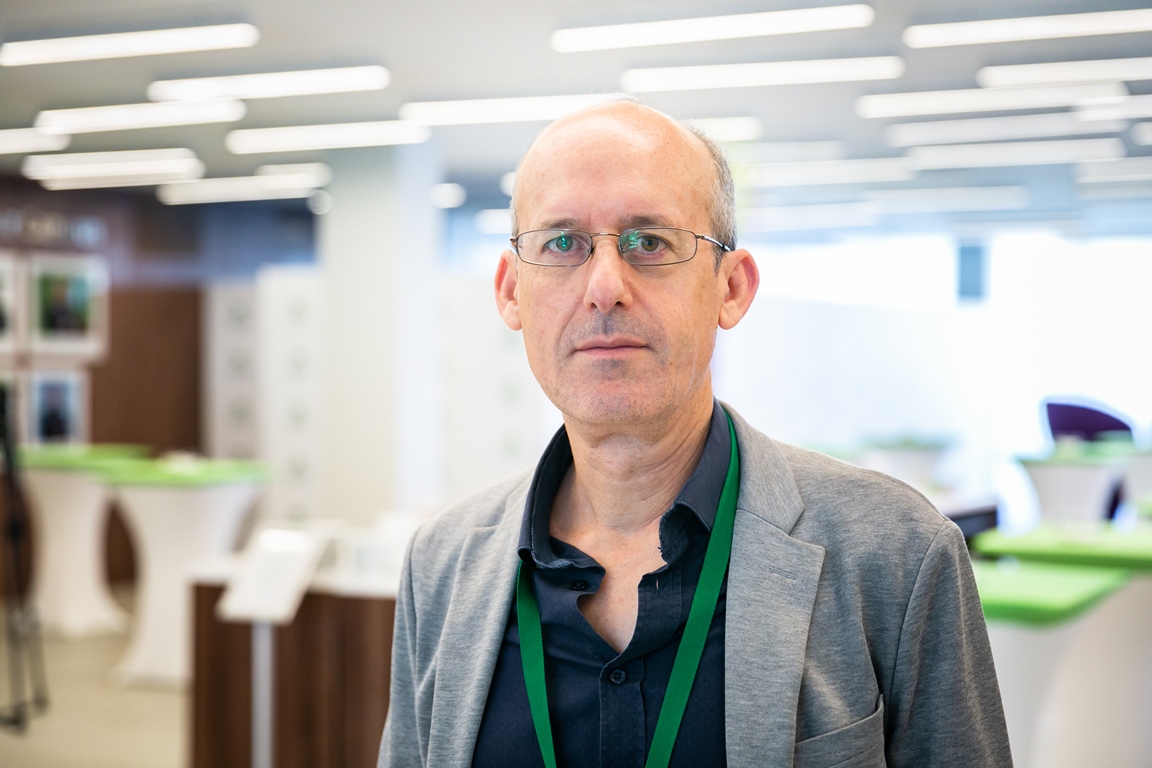
Humberto Llavador (Universitat Pompeu Fabra, Spain), Head Judge, Member of the Olympiad Executive Board
At our university we have an award for the best research work that high school students do – in Spain all high school students need to do a research project in their last year of school. Talking about research papers in economics, students seem to be primarily interested in two main topics – inequality and climate change or the environment more broadly. The last surveys show that inequality and environmental issues have become more relevant in many countries than the traditional issues of unemployment, financial crisis, or terrorism and safety. So for high school students these issues are also the most pressing.
At this competition, economics part of the Olympiad would probably present the most difficulty for the contestants because it deals with reasoning and intuition. Economic intuition is something that requires some time and talent to acquire. The first task on this Olympiad will be evaluated automatically – by a programme. The second and third require evaluating the capacity to reason in economic terms and for the case study – to also think in the business perspective. So there is no single one correct answer. Maybe there are no the best solutions, but there are some that are better than others. So we will rank the solutions because we do not need to know what is the best, we only need to know what is better.
The most challenging thing about this Olympiad is the scope of topics the syllabus covers. The organizers wanted to focus on economic thinking and intuition. The idea of economic thinking and reasoning is common regardless of what the particular national syllabus in economics there is. It’s not going to be about specific formulas but more about an economic mindset.
I think economics should be a mandatory subject at schools. However, we have to carefully define the contents. Everybody should be economically literate, which means everybody should be able to avoid being cheated when they sign a loan or sign a credit card contract, or when they ask for a mortgage. People should know the economic principle behind it. Everybody should understand the main economic concepts such as inflation and unemployment and how these are measured. If people are economically literally, they cannot be manipulated.
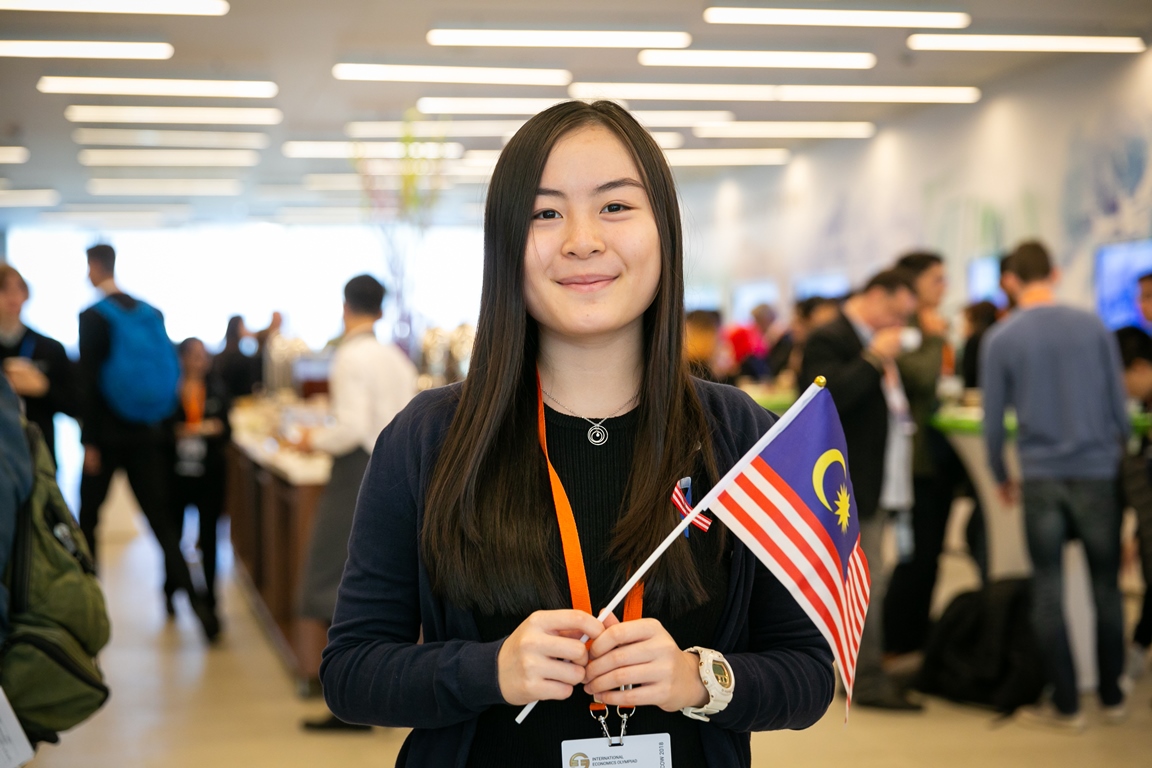
Nicole Loh (Malaysia), contestant
I have a passion and love for economics, which has bloomed over the past years. I’ve done a lot of business pitches at competitions before and I’ve done some research. I do want to venture into economics and business or finance in the future and I feel that the opportunity that has been given by the Higher School of Economics allows the students to come and participate and share ideas and compete. It is great. I’m really excited about the case study because this is something where you don’t know what is going to happen. I want to work as part of a team and tell the others what I think about a case study.
I have a mentor who works at the Central Bank of Malaysia and he has been giving me a lot of tips to help me prepare for the competition. I’ve also been reading the syllabus – it is a lot of work and a lot of hours but I feel that I am well prepared. There are some topics on the competition syllabus that we didn’t cover at school, for instance, the history of economics, and also some things are higher level. But I think it challenges me to further invest my time in economics.
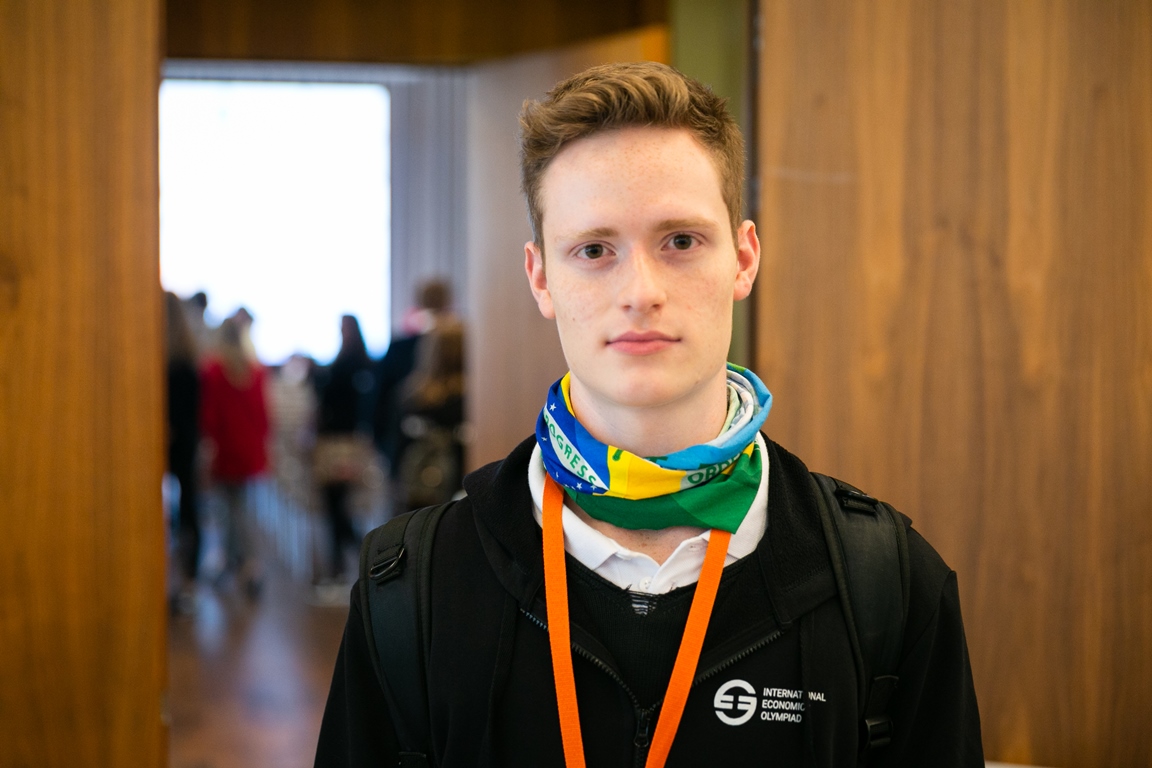
Henrique Lazevecius Azevedo (Brazil), contestant
When I heard about the International Economics Olympiad back in Brazil, I had to do the national economics Olympiad and while studying for it I became truly impressed by the wide range of issues and topics economics deals with. The issues are so complex and fascinating at the same time. It’s a great opportunity to be here and I have great expectations. Everything that I’ve seen so far has been amazing. In Brazil, we don’t have economics as a mandatory subject at school so I prepared mostly by myself for the national competition and our team leaders helped us prepare for this international Olympiad.
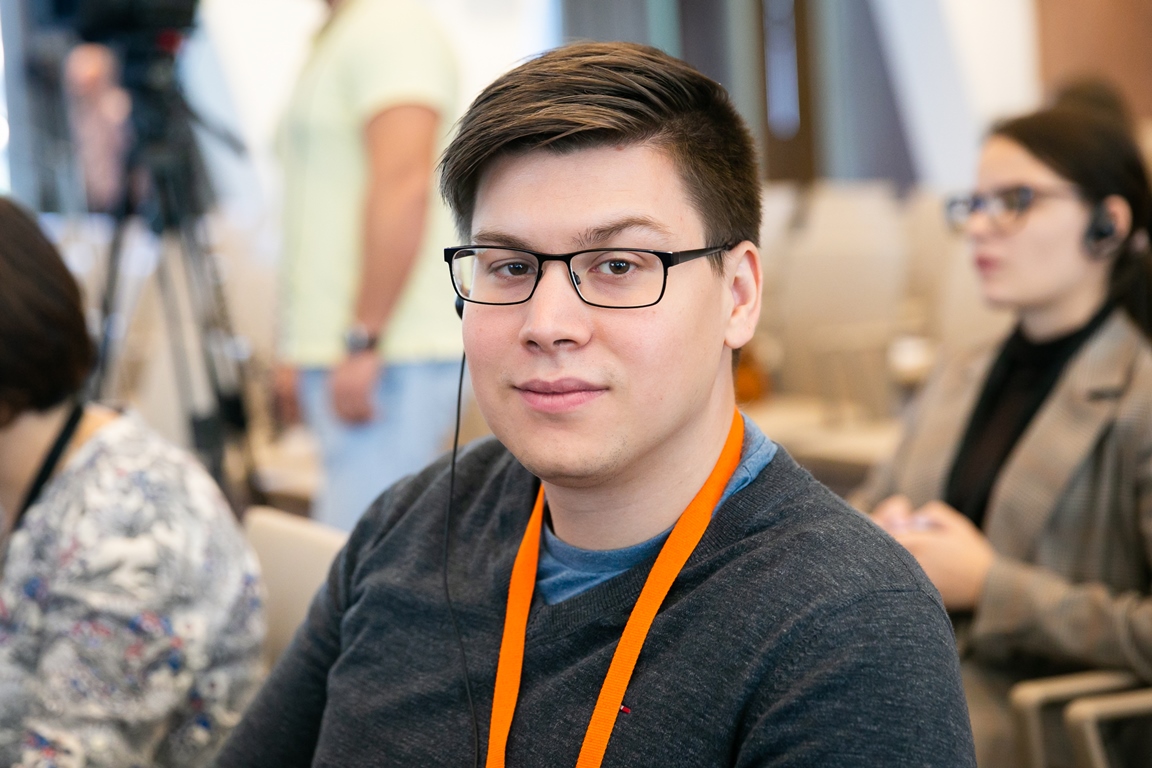
Thomas Andreas Schneiter (Young Enterprise Switzerland), team leader Switzerland, member of the Olympiad Executive Board
The organization I work for encourages young people to study economics. Our organization was contacted by the organizers and invited to send a team to the Olympiad. Our team members went through a competition that we held – they had to found mini-companies during one year. In Switzerland some schools have a special focus on economics and students study economics, accounting, and business. There are also other schools that have an optional course in economics and not a lot is being taught. All our contestants come from schools that focus on economics, which is a good advantage for us. We did not have much time to prepare for the international Olympiad but the syllabus of the schools covers the majority of topics that will appear at the competition. We also had one workshop to prepare for the competition to make sure all the topics are familiar to the contestants and that they feel confident about their ability to deal with different types of tasks. We went into more detail with the case studies because the students did not really do that at high school.
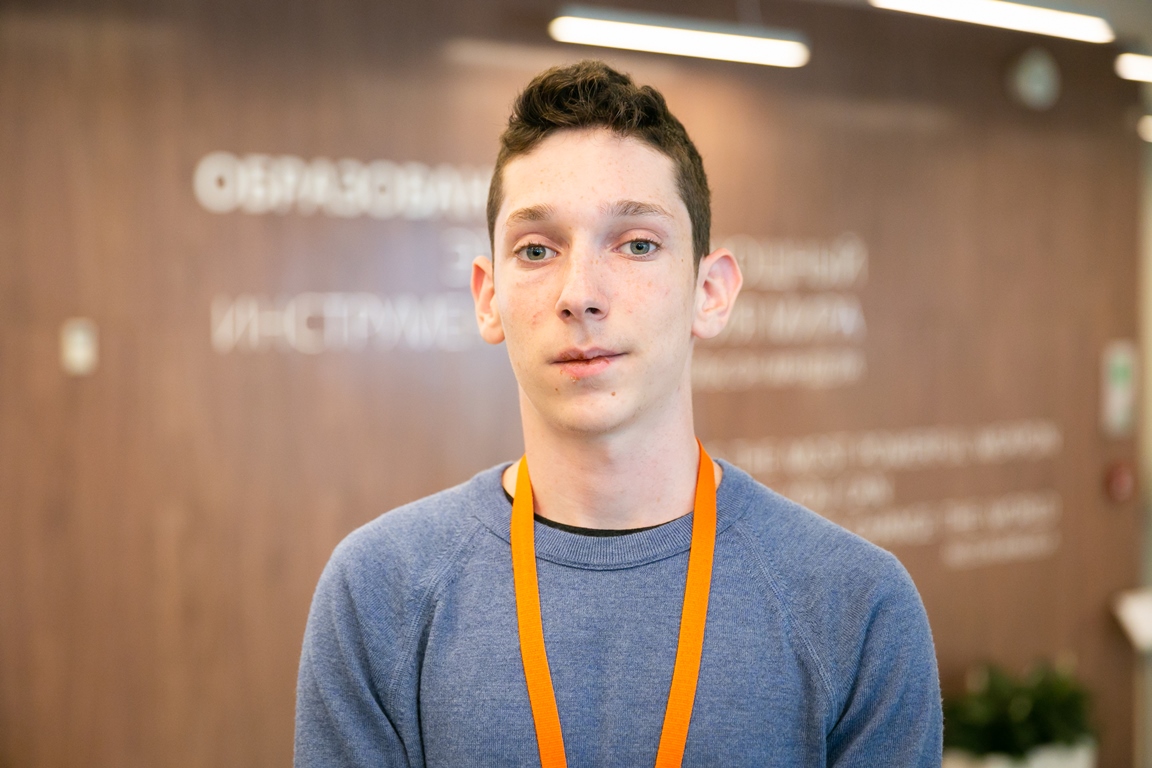
Allen Weisbord (USA), contestant
Economics is not a mandatory subject in the US but it is available as an optional course in most schools. My school offers courses in Macro and Microeconomics but I haven’t taken them yet and will only be starting my formal economics training next year. I am greatly interested in studying economics in college and possibly after. I taught myself most of the economics and studied outside of class. I participated in the American National Economics Olympiad with my high school team and was then invited to this international competition. It sounded like a great opportunity so I accepted the offer. In our national competition we did not have the financial literacy component, which we will have to do at this Olympiad. We focused a lot on general economics knowledge and specific American institutions, such as federal reserve functions, that do not apply to international economics. I spent a good deal of time trying to coordinate with the rest of our team so that we had thorough knowledge of things that will be on this competition. Once we looked at the syllabus, we tried to identify what our gaps are. For me, the case study seems the most interesting element of the competition because its open-endedness is really exciting. This is my first visit to Russia and I am also excited to see Moscow, the Kremlin, and the Red Square.
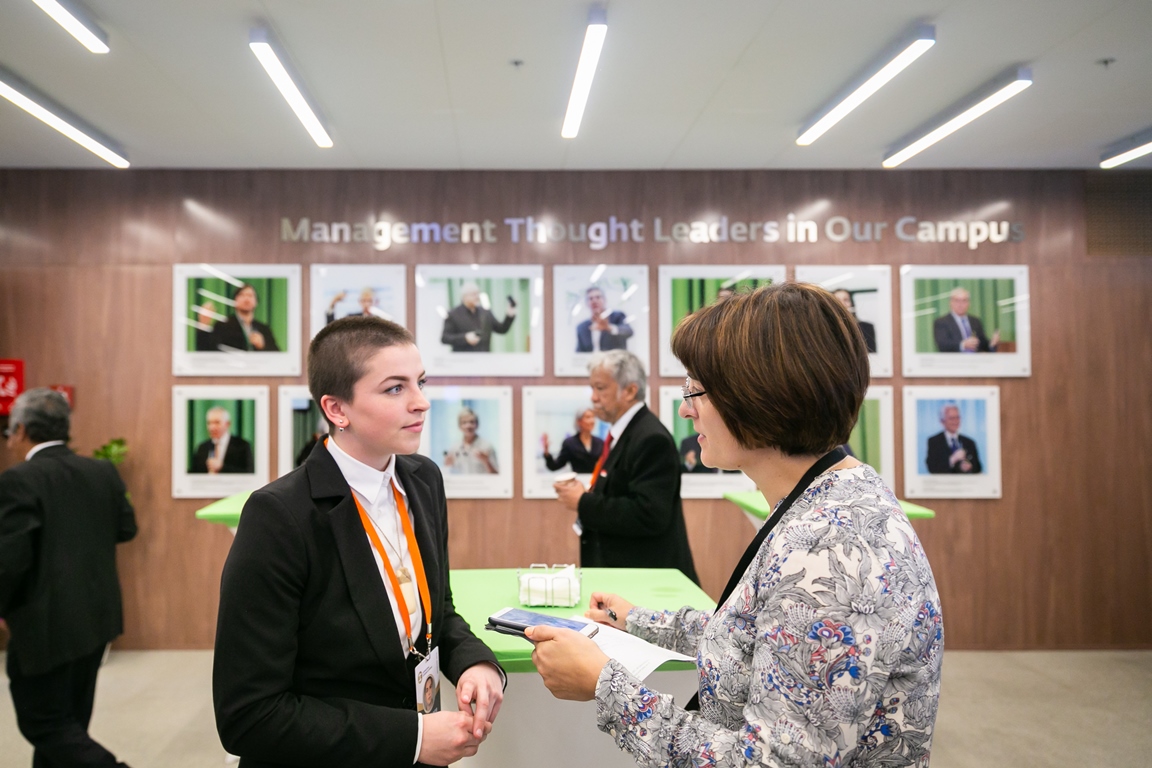
Kyla Grace Allen-Jennings (New Zealand), contestant
At school I first had a Social Science class which included some Economics along with History and Geography. Then I started Economics and Accounting three years ago. I became truly interested in Economics through debates with my family – who was right on different political issues and I found that politics always comes back to economy. I see income distribution as the biggest problem the world is facing at present. There are of course a lot of deep-seated issues – we need to create an economy where people can grow and expand their companies and businesses and we have a place for the super rich but it’s only inequitable when some other people do not have enough. If everybody has enough than lots of people can have a surplus. At the end of the day, I think we need to appeal to people’s humanity – if you set the poorest person down with the richest person and forced them to have a conversation you would find a happy balance. If somebody that had enough saw another person’s struggle face to face, there would be a way to figure out a solution to that.
At this competition I am really looking forward to doing the case study because I really like working with people and I am really excited about getting to know my team better.
See also:
Early-Career Researchers Discuss Cooperation between Russia and Arab States
HSE University has hosted a conference entitled ‘Russia—The Arab World: Digital Future and Youth Cooperation,’ organised by the Faculty of World Economy and International Affairs (WEIA). The meeting took place in the run-up to the first Russian–Arab summit, due to be held in Moscow on October 15, 2025.
Pivot to the East: A Comprehensive Study of the Cultural and Civilisational Centres of the Non-Western World is the Top Priority
China and the Chinese world, South Asia, Southeast Asia, the Arab countries, Iran, Turkey, Central Asia and Africa are gaining new significance in Russia’s foreign policy. However, we do not know enough about the Eastern countries. It is necessary to change the priorities in education, starting from grammar school. Prospects for the development of domestic Oriental studies in the context of the new stage in the development of the system of international relations were discussed at a round table at HSE University.
‘I Admire HSE Students’ Eagerness to Learn, to Discuss, to Broaden Their Perspectives’
Robert Romanowski was a ‘Digital Professor’ at HSE University in November 2021. In his interview for the HSE News Service, he talked about the specifics of online teaching, his course on Strategic Branding, and the skills that are essential for marketing professionals today.
Russia and Africa: Time to Expand Cooperation
There is major potential for economic and humanitarian cooperation between Russia and African countries. Particularly, Russian organisations and universities can help transfer competencies and knowledge in the fields of agriculture, energy, industrial production, environmental management, climate change, and public administration. Experts and representatives of African embassies in Russia discussed these issues at the round table ‘Russia-Africa Sharing Knowledge’ hosted by HSE University.
The Brain in Space: Investigating the Effects of Long Spaceflights on Space Travellers
As part of an international project conducted with the participation of Roscosmos and the European Space Agency, a team of researchers used differential tractography to analyse dMRI scans ofcosmonauts’ brains and found significant changes in brain connectivity, with some of the changes persisting after seven months back on Earth. The paper is published in Frontiers in Neural Circuits.
HSE University-Perm and the Training Centre of the Uzbek Ministry of Finance Sign Cooperation Agreement
HSE University in Perm has become the first academic partner of the Training Centre under the Ministry of Finance of the Republic of Uzbekistan. The parties have signed a cooperation agreement in education and research.
HSE University Strengthens Ties with Netherlands in Agricultural Research and Education
On November 9, 2021, HSE University signed a memorandum of understanding with Wageningen University & Research, a major university in the Netherlands and one of the leading agricultural research institutes in the world. Participants of the signing ceremony included HSE University Rector Nikita Anisimov, President of the Wageningen University & Research Executive Board Professor Louise Fresco, and Dutch Ambassador to Russia Gilles Beschoor Plug.
The Majority of Russians Do Not Support Microchip Implants
The majority of Russians would not agree to being fitted with microchip implants for any purposes—medical or otherwise. A joint study conducted by HSE University’s International Laboratory for Applied Network Research and Aventica found that respondents believe the risks of personal data leaks and misuse to be too high.
‘We Can Now Say That the Finance Conference Is Global’
The 10th International Moscow Finance Conference, organized by HSE ICEF, took place on October 29–30 online. Vladimir Sokolov, Head of the International Laboratory of Financial Economics, which hosted the conference, talks about the participants, the key presentation topics and how they will impact the global economy.
HSE University Scholars Study Green Transition Risks and Greenhouse Gas Emission Regulation
The UN Climate Change Conference is taking place from October 31 to November 12 in Glasgow. The conference focuses on preventive measures against the catastrophic and irreversible consequences of rising average global air temperatures. Igor Makarov, Head of the HSE Laboratory for Economics of Climate Change, will be taking part in the Glasgow conference. In the following interview, he speaks about the pressing problems Russia and the world are facing, and the research HSE scholars are doing on climate change.


